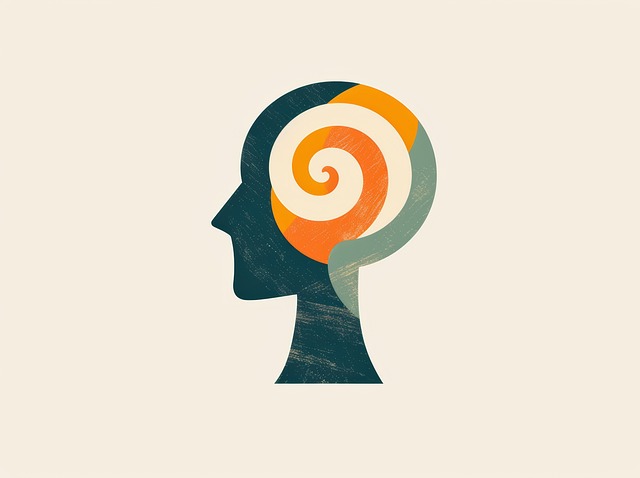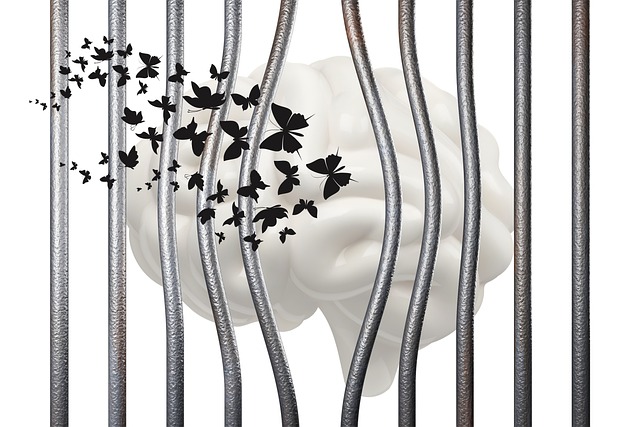Transpersonal psychotherapy is a holistic approach to mental health psychotherapy that integrates mindfulness, meditation, and energy healing techniques to address mind-body-spirit interconnectedness. By challenging traditional psychological boundaries and exploring spiritual dimensions, this therapy facilitates self-awareness, belief challenges, and deeper inner connections, promoting balance and harmony for overall well-being. It offers a unique blend of spirituality and consciousness exploration, encouraging clients to embrace their intrinsic worth, overcome limiting beliefs, and cultivate resilience, ultimately contributing to better mental health and higher life satisfaction.
Transpersonal psychotherapy, a revolutionary approach to mental health, offers a holistic perspective on human psychology. This unique therapy goes beyond traditional boundaries, exploring consciousness, spirituality, and personal growth. By expanding the concept of self, transpersonal psychotherapy helps individuals achieve deeper self-actualization and integrate spirit with mind. In this comprehensive guide, we unravel its core principles, techniques, benefits, and challenges, providing insights into how it fosters therapeutic relationships and enhances overall mental well-being.
Understanding Transpersonal Psychotherapy: A Holistic Approach to Mental Health

Transpersonal psychotherapy is a holistic approach to mental health that focuses on the interconnectedness of mind, body, and spirit. Unlike traditional talk therapies that primarily address psychological symptoms, transpersonal therapy explores deeper levels of human experience, often tapping into intuitive and transcendent aspects of the self. This unique perspective acknowledges that mental well-being is not solely confined to the individual but is influenced by broader existential and spiritual factors.
By integrating various therapeutic techniques from different traditions, such as mindfulness, meditation, and energy healing, transpersonal psychotherapy aims to facilitate a profound sense of self-awareness and personal transformation. It encourages clients to expand their consciousness, challenge limiting beliefs, and cultivate a deeper connection with their inner selves. This holistic approach believes that healing occurs when there is balance and harmony among the psychological, physiological, and spiritual dimensions of a person’s being, ultimately promoting overall well-being and enhanced mental health.
Core Principles and Beliefs: Expanding Beyond the Self

Transpersonal psychotherapy is founded on the core principle that individuals are not solely defined by their personal experiences and consciousness, but also by a deeper connection to something greater than themselves. This therapy goes beyond traditional psychological boundaries, encouraging clients to explore and expand their sense of self, often referred to as “transpersonal.” It posits that mental health and well-being are enhanced when individuals recognize and connect with universal or collective aspects of human experience.
At its heart, this approach believes that by transcending the limits of personal ego, one can access a deeper level of consciousness, leading to profound insights and transformative experiences. This process involves cultivating awareness of shared human experiences, spiritual dimensions, and the interconnectedness of all things—a shift from a self-centric perspective to an expanded, inclusive sense of identity. Such beliefs underpin transpersonal psychotherapy’s unique approach to understanding and addressing mental health concerns.
Techniques and Practices: Exploring Consciousness and Spirituality

Transpersonal psychotherapy delves into the exploration of consciousness and spirituality as integral parts of its techniques and practices, offering a unique approach to mental health support. This form of therapy encourages individuals to transcend their personal boundaries and embrace a broader perspective on self-awareness and well-being. Through various methods, therapists guide clients on a journey to uncover deeper layers of perception, fostering a sense of connection with something greater than themselves.
The practice often incorporates mindfulness techniques, meditation, and contemplative practices to enhance self-reflection and introspection. By encouraging individuals to explore their spiritual dimensions, transpersonal psychotherapy aims to promote personal growth, expand emotional intelligence, and cultivate a profound sense of inner peace and purpose. This holistic approach recognizes the interconnectedness between mental health, spirituality, and overall well-being, providing clients with tools to navigate life’s challenges from a place of heightened consciousness.
Benefits for Mental Well-being: Enhancing Self-Actualization

Transpersonal psychotherapy offers a unique and powerful approach to enhancing mental well-being by tapping into an individual’s profound inner resources. This form of therapy goes beyond traditional psychoanalytic methods, focusing on expanding consciousness and fostering self-actualization. By exploring the transpersonal realm, clients can achieve a deeper understanding of themselves, leading to increased personal growth and improved mental health.
The benefits are multifaceted; it encourages individuals to embrace their intrinsic worth and purpose, promoting a sense of authenticity and well-being. This therapy facilitates a journey of self-discovery, where clients learn to connect with their subconscious minds, emotions, and spiritual aspects. As a result, they can gain new perspectives, overcome limiting beliefs, and develop a stronger sense of resilience, all of which contribute to improved mental health and overall life satisfaction.
Integrating Spirit and Mind: A Journey of Personal Growth

In transpersonal psychotherapy, one of the core aspects is integrating spirit and mind—a journey that facilitates profound personal growth. This therapeutic approach recognizes that mental health isn’t solely a psychological matter; it’s deeply connected to our sense of self, purpose, and spirituality. By exploring these realms, individuals can gain a more holistic understanding of themselves and their experiences.
Through this integration, clients learn to connect with their inner wisdom, tap into a wellspring of resilience, and cultivate a deeper appreciation for life. The process involves delving into the unseen aspects of human existence, such as intuition, consciousness, and a sense of transcendence. This journey often leads to increased self-awareness, enhanced emotional intelligence, and a renewed sense of purpose, all of which contribute to improved mental health and overall well-being.
Therapeutic Relationships: Building Trust and Connection

In transpersonal psychotherapy, the therapeutic relationship is paramount. It’s not just about talking through problems; it’s about cultivating a deep and genuine connection. Therapists aim to create a safe, non-judgmental space where clients feel seen, heard, and understood. This foundation of trust allows for vulnerability, which is essential for meaningful change. The relationship itself becomes a powerful tool for healing as it facilitates introspection and personal growth.
This connection goes beyond the mere conversational interaction. It involves empathy, compassion, and a genuine interest in the client’s well-being. Therapists use this relationship to help clients explore their inner experiences, including spiritual or transcendent aspects, that might be contributing to their mental health challenges. This holistic approach recognizes that emotional healing is deeply intertwined with social connection and trust.
Challenges and Ethical Considerations in Transpersonal Practice

Transpersonal psychotherapy, while exploring profound aspects of human experience, presents unique challenges and ethical considerations in the realm of mental health therapy. One primary concern is the potential for boundary blurring between therapist and client, especially when delving into spiritual or transcendent themes. Therapists must navigate these territories with utmost professionalism, maintaining clear boundaries to protect both themselves and their clients from exploitation or unintended consequences.
Additionally, ethical dilemmas arise due to the subjective nature of transpersonal experiences. What one person interprets as a profound spiritual awakening might be viewed differently by another. Therapists need to approach such experiences with cultural sensitivity and an understanding that personal interpretations can vary widely. Ensuring informed consent, maintaining confidentiality, and respecting client autonomy are paramount to ethical transpersonal practice in mental health psychotherapy.
Future Outlook: The Evolving Role in Modern Psychotherapy

The future outlook for transpersonal psychotherapy is promising, as its role in modern mental health care continues to evolve and gain recognition. This approach, which delves into the exploration of consciousness and spiritual dimensions, offers a unique perspective on healing and personal growth. By integrating ancient wisdom with contemporary therapeutic techniques, transpersonal therapy provides clients with powerful tools to navigate life’s challenges and enhance their overall well-being.
In today’s diverse and often fast-paced world, where mental health concerns are prevalent, this form of psychotherapy can offer a transformative experience. Its ability to address the whole person—mind, body, and spirit—makes it an appealing option for those seeking profound and lasting changes in their lives. As research continues to support its effectiveness, transpersonal psychotherapy is poised to become an increasingly valuable component of the modern psychotherapy landscape.
